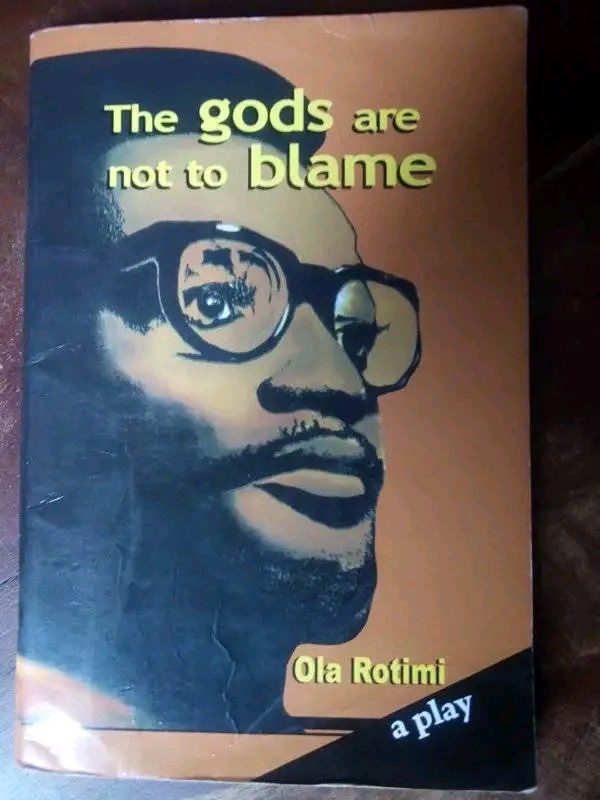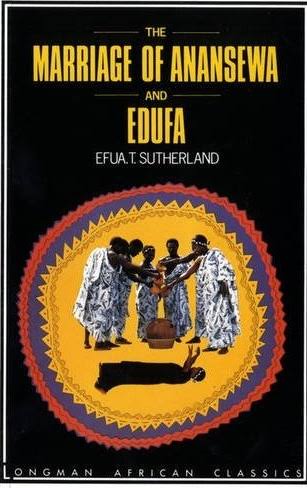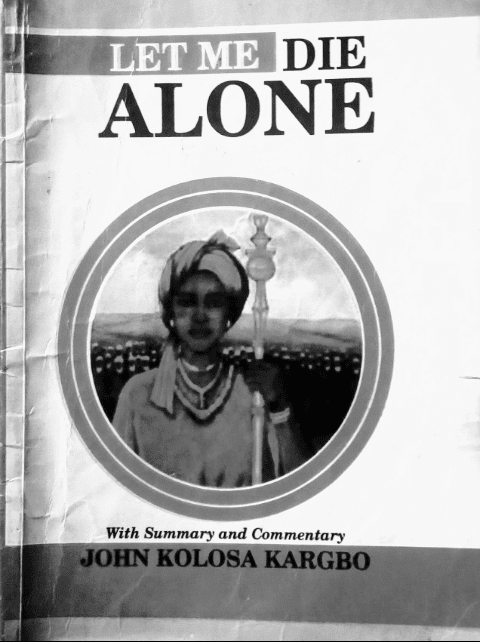Multiple Choice Questions
(1) Because of his fiery temper as a youth, Odewale was called the
(a) gorilla (b) scorpion (c) humbler of the wild (d) thunder lion (e) son of Odediran.
(2) ‘Is Aderopo jealous that I am sharing a bed with his mother? Very well then, let him come and sleep with his mother.’
Odewale’s statement is a good example of
(a) euphemism (b) pun (c) irony (d) sarcasm (e) jargon.
(3) ‘Just because I am an Ijekun man, and do not belong to your tribe, the sight of me as your king gnaws at your liver, and rips your heart asunder …’
The speaker’s statement is prompted by
(a) guilty conscience (b) Oedipus complex (c) delusive grandeur (d) persecution complex (e) patriotic fervour
(4) Odewale: I thought you were leaving with your son, Aderopo.
Ojuola: It is you I married your highness, not my son.
This exchange from The Gods are not to Blame is an example of
(a) flashback technique (b) dramatic irony (c) poetic licence (d) false analogy (e) pathetic fallacy.
(5) ‘The oracle warns us that we have left our pot unwatched, and our food now burns.’
This statement in The Gods are not to Blame refers to
(a) the killing of King Adetusa (b) the crime of incest committed by King Odewale (c) Aderopo’s quarrel with King Odewale (d) the banishment of Aderopo.
(6) ‘… the toad likes water but not when the water is boiling.’
King Odewale in The Gods are not to Blame uses this proverb to explain why he
(a) exiled himself from the home of his supposed parents (b) exiled Aderopo from his presence (c) treated Baba Fakunle with disrespect (d) no longer likes the land of Kutuje.
(7) Baba Fakunle: How much did he give you?
Boy: Ten cowries, Baba.
Baba Fakunle: Hand him back nine.
The order to return nine cowries were given by Baba Fakunle because he
(a) wanted to spite the King by taking only one cowrie (b) felt insulted that he was given only ten cowries (c) did not want to meddle with leprous money given with bloody hands (d) wanted to emphasize that the messenger of Olodumare takes only one cowrie.
(8) ‘When the frog on front falls in a pit, others behind take caution …. When crocodiles eat their own eggs, what will they not do to the flesh of a frog?’
In the context of The Gods are not to Blame, the person who made this statement is alleging that King Adetusa
(a) died falling into a pit (b) fell victim to man-eating crocodiles (c) was killed by the people of Kutuje (d) was killed by the Ijekun people.
(9) Odewale shifts the blame for his tragedy from the gods to himself and claims that his tragedy is a result of his own weakness. The weakness he claims is love of
(a) power (b) adventure (c) his tribe (d) divination
(10) In the play The Gods are not to Blame, Odewale became the King of Kutuje by
(a) usurpation in a typical Ijekun manner (b) deserting the people of Ikolu whose army he led (c) divulging the war secrets of Ikolu to Kutuje (d) leading Kutuje in a war against Ikolu
(11) ‘No, let them attack me. Is it ignorance that makes the rat attack the cat? Ten thousand of them – let them … attack me. They have the arms, they have the swords. But me … I have only one weapon and this I have used, and mine is victory.’
The one weapon to which the speaker in The Gods are not to Blame refers to is (a) prophecy (b) courage (c) truth (d) justice.
(12) ‘Then let these eyes around me close. Close, close in sleep, close in sleep. That is my word – the mountain always sleeps. Sleep … sleep … sleep …’
These lines from The Gods are not to Blame were chanted by (a) Iya Aburo to mesmerise her son (b) Baba Fakunle to mesmerise his assailants (c) Odewale to mesmerise his assailants (d) Old man to mesmerise his assailants
(13) ‘But Obatala
God of creation,
has a way
of consoling the distressed.’
The consolation referred to by the narrator in The Gods are not to Blame is the (a) great peace that reigned in the land of Kutuje (b) subjugation of the warlike people of Ikolu (c) pregnancy of Aburo, Odewale’s second wife (d) birth of Aderopo by Ojuola.
(14) ‘First Bodyguard: A madman wanting to see the king! The world, indeed, is mad
Ojuola: How do you know he is a madman?’
Which of the following is the answer given by the Second Bodyguard to Ojuola in The Gods are not to Blame? (a) Everyone can he is mad, your highness (b) Only a madman would want to see the king now, your highness (c) We all know him very well, your highness (d) He is not a man of our tribe, your highness.
(15) ‘If you think that you can drum for my downfall, and hope that drum will sound, then your head is not good.’
Odewale says this because (a) Aderopo is a skilful drummer (b) he believes that Aderopo is plotting his overthrow (c) he thinks that Aderopo is mad (d) Aderopo has not learnt how to drum well.
(16) In the prologue, the narrator’s role in The Gods are not to Blame is to (a) explain why the gods are not to blame (b) narrate the life history of the hero (c) remind the principal characters of their functions (d) explain to the audience the mimed action on the stage.
(17) ‘Well, wasn’t there anyone with him? Someone who survived? Someone who managed to come home and say what exactly happened, where it happened, how it happened, not even a rat?’
The lack of precise knowledge concerning the king’s fate as outlined in the passage above, arose as a result of the fact that (a) all the six bodyguards deserted the king (b) of the seven bodyguards, only one came back (c) all the four bodyguards were killed (d) of the five bodyguards, only one came.
(18) What is the significance of Alaka and Gbonka to the plot of the play? (a) They are major figures in the drama (b) They alone held the vital clues for revealing the identity of Odewale (c) They were friends of the late Ogundele (d) Their meeting with Odewale would help assuage his sorrow.
(19) A dominant device which Ola Rotimi uses to suggest an authentic background in the play is (a) dialogue (b) rituals (c) proverbs (d) songs and dances.
Check the answers below.
Answers
1. B
2. D
3. D
4. B
5. A
6. A
7. D
8. C
9. C
10. D
11. C
12. C
13. D
14. D
15. B
16. D
17. D
18. B
19. C
 WHATSAPP: Click HERE to join the new Literature PADI WhatsApp group to receive latest updates on your phone and for further literary discussions!
WHATSAPP: Click HERE to join the new Literature PADI WhatsApp group to receive latest updates on your phone and for further literary discussions!










